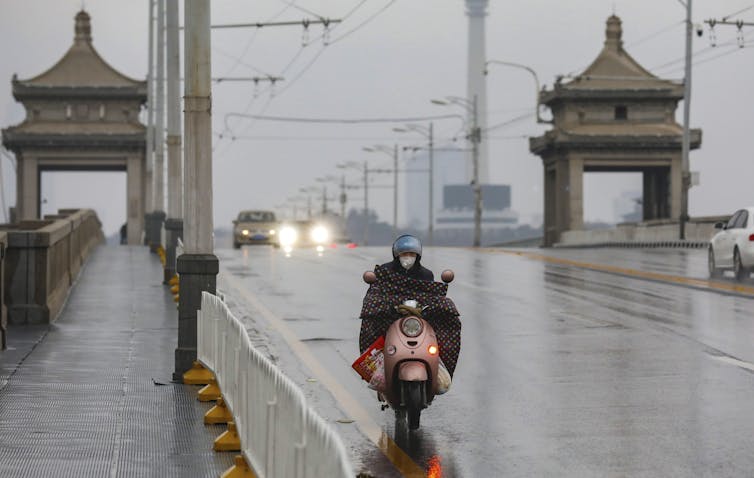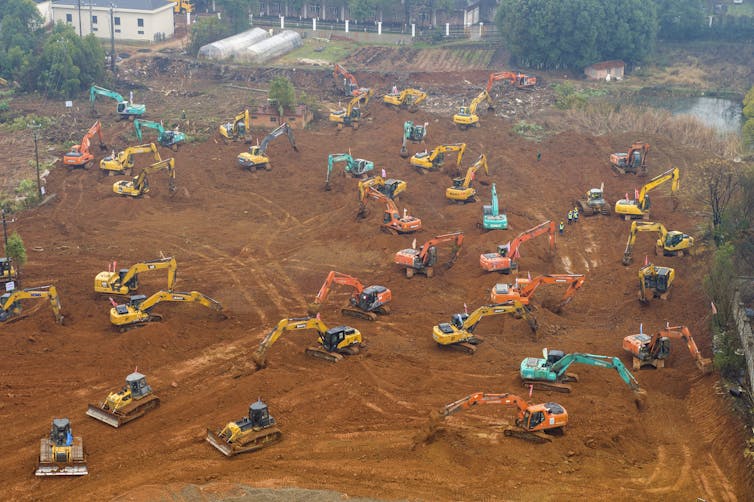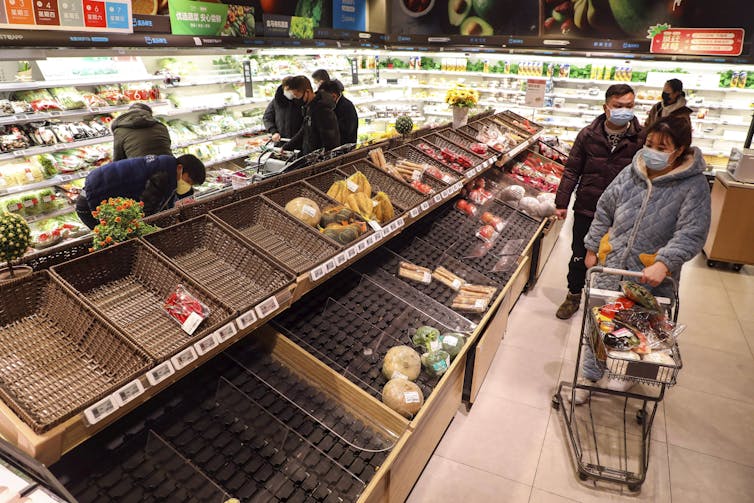Public fear seems inevitable given the alarming updates on the coronavirus outbreak, and isolation — in the forms of lockdown and quarantine — has become our default response.

As a social scientist in globalization studies, I am interested in the role some of the less visible layers of globalization — such as awareness of our connections with the lives of people elsewhere — have in shaping our responses, including emotional responses, to global threats, like this one and those to come.
For example, while the massive lockdowns in China have aimed to decelerate the spread of the virus, have we asked ourselves what has been going on in Wuhan, the epicentre of the 2019-nCoV outbreak and the first city to be locked-down, and what it may mean for the rest of the world?
Temporal aspects
The initial response to the epidemic in Wuhan appears to have been delayed by as much as a month, in part by its timing. The “largest human migration” that occurs annually during the Lunar New Year means there was an increased risk of widespread contagion and a potential threat to social and political stability.
In China’s system, a disease like this can never be only a public health issue; it is also one that requires careful political calculation. After the central government’s frustration in other international arenas, such as Taiwan’s election and the trade war with the United States, the epidemic is its biggest test and, therefore, a priority.

After Chinese President Xi Jinping’s public remarks on Jan. 20, the country began taking immediate action. Authorities cancelled planes and trains leaving Wuhan and curtailed transit within the city on Jan. 23, and other cities and provinces swiftly followed. As of Jan. 25, the movement of 56 million people had been restricted.
Policies targeting the spread of the novel coronavirus included free medical care for infected patients, free travelling ticket cancellation, rumour control and the extension of the Lunar New Year holiday. Free apps for self-screening and public education on self-quarantine and face mask use rapidly became available online.
A spectacle of lightning-fast activity similar to what occurred during the SARS epidemic was repeated: Construction crews broke ground on Jan. 24 on a 1,000-bed hospital that is expected to be in use by Feb. 3; another will open shortly after.
Geospatial aspects
Although Wuhan, with its 11 million people, has a larger population than New York City, it is merely the seventh-largest city in China and a beta city in the world city networks (equivalent to Calgary).
In a way, it is fortunate that 2019-nCoV did not start in Beijing, Shanghai or Hong Kong, all of which are highly ranked world cities (second only to London and New York City) with direct daily flights to other global cities, including Toronto and Vancouver. Had it begun in one of those major centres, the global landscape of the new coronavirus might today look very different.

On a domestic level, though, Wuhan’s location as a historical transportation hub in central China confers additional risk, considering its easy access through multiple routes, including water (the Yangtze River) and high-speed trains, to many other provinces. The destinations of the five million who left Wuhan before the lockdown cover many provinces in China.
Wuhan’s capacity to respond to the epidemic — reflected by, for example, the city’s governing capacity, access to decision-making power and ability to mobilize resources — seems hardly to compare with that of Beijing.
Societal aspects
The lockdown, a place-based containment strategy, has transformed Wuhan into a dystopian city. Public transit is not running, streets are empty, flights have been cancelled and foreign residents have been evacuated.
Despite their acceptance of the lockdown for a bigger cause, people are complaining about many things on social media: the lack of transportation, overcrowded hospitals, shortages of face masks and other protective gear (even in hospitals) and an inability to re-enter Wuhan.
The spread of the virus within China has been accompanied by wide reports of discrimination against people from that city, although lists of hotels willing to host Wuhan people travelling outside the city are also being circulated online.
Social media such as Weixin (WeChat) did not exist at the time of SARS. It has become a key medium and tool for people to survive isolation, seek help, co-ordinate donations and push the local government for information transparency. Five days after the lockdown, residents in several high-rise buildings in Wuhan mobilized themselves through social media to lift their spirits by simultaneously opening their apartment windows to chant “stay strong (jiāyóu), Wuhan” and sing the national anthem.
Humorous memes have also figured prominently on social media, offering some relief from the increasingly intense worries: “Staying at home is helping the world” and “It feels great that I can finally contribute to society by lying on the couch and doing nothing.”
Although Wuhan, like other Chinese cities, is now under quarantine, it is important that the world — including Canadians — should continue to bear witness to them, their affliction, their challenges, their efforts and their autonomy. Seeing them beyond isolation will also help us to think about our own connections in this globalized world and, thus, to act beyond our self-centred fears.![]()
Yanqiu Rachel Zhou, Professor, Social Sciences, McMaster University
This article is republished from The Conversation under a Creative Commons license. Read the original article.









